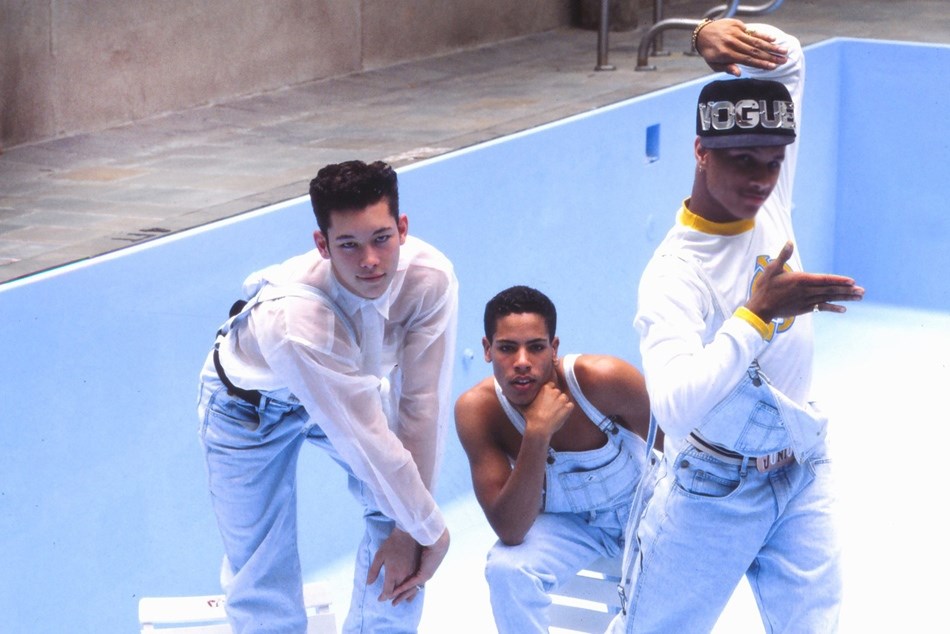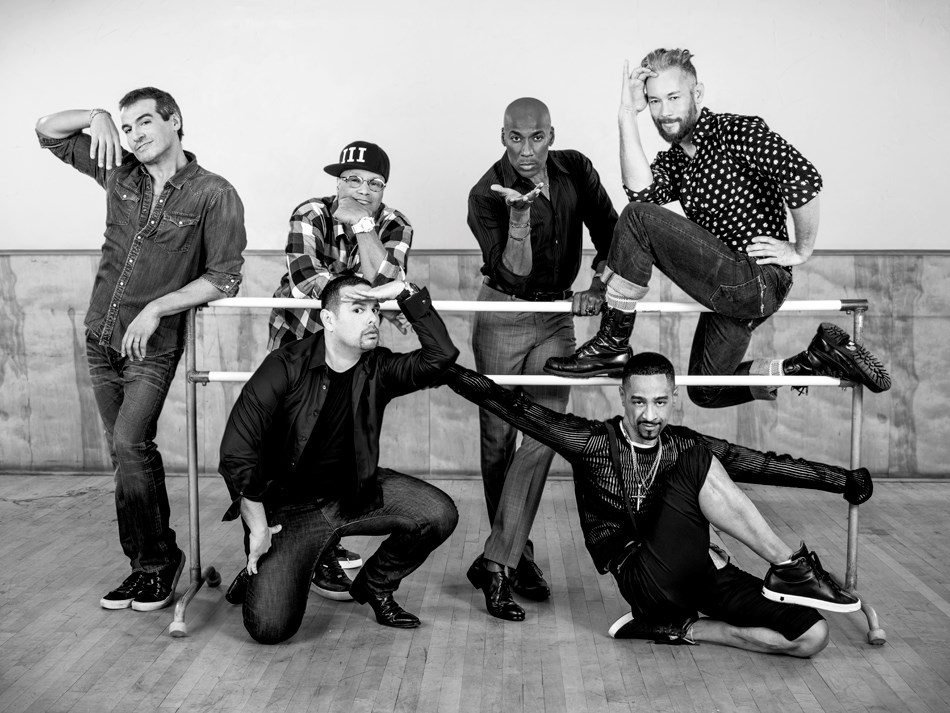Kevin Stea almost didn’t make the cut for Madonna’s iconic 1990 Blond Ambition World Tour.
At the final audition, the talented freestyler – who had responded to an ad looking for “fierce” male dancers – was leaving everything he had on the dance floor, but the Material Girl was too wrapped up in talking to even watch.
He caught the eye of her brother, Christopher, however, who hired him as associate choreographer for her “Vogue” video and catapulted him into Madonna’s world.
Fast forward two-and-a-half-decades later, and Stea is one of six surviving dancers featured in Strike a Pose, an introspective new documentary by Dutch filmmakers Reijer Zwaan and Ester Gould that focuses on the men – six gay, one straight – whose lives were forever changed by the tour.
While Blond Ambition and the subsequent film, Truth or Dare – her cult-classic black-and-white doc that captured the titillating action off stage – shocked the world with their barrier-breaking provocations around sexuality, religion and homosexuality, though, Strike a Pose does not linger on Madonna.
Rather, in examining the lives of the men who made voguing mainstream – Luis Camacho, Oliver Crumes, Salim “Slam” Gauwloos, Jose Gutierez Xtravaganza, Kevin Stea, Gabriel Trupin (who lost his life to complications from AIDS in 1995) and Carlton Wilborn – the film focuses its narrative on the fallout of the tour and the painful secrets that stayed hidden, even as the young men expressed themselves to the world.
Trupin, in particular, reluctantly found himself at the centre of Truth or Dare’s most controversial (and influential) moment: a passionate, pop-culture same-sex kiss. And his passing had a profound effect on the group, who were mostly in their early 20s at the time.
“It was a different time when we made [Truth or Dare]. It really was,” says Stea, who didn’t know his friend was ill until after his death. “There was danger. There was a lot at risk, and it wasn’t just about HIV/AIDS. Just being gay in the entertainment industry with the press ready to pounce on anybody. If you said anything or declared anything – affirmed people’s suspicions you were gay – you risked your entire career. And then if you talk about HIV and AIDS...” he trails off. “That was just an absolute taboo. You were a pariah.”
For Stea, who (along with Trupin and Crumes) went through an emotionally difficult lawsuit with Madonna after the tour, watching Strike a Pose has been cathartic – a chance to reflect on his life 25 years later, and actually acknowledge the impact their “naiveté” and openness had on the LGBTQ community around the world.

“I’ve never really looked back on my body of work and thought, ‘Wow, I’ve done work that has impacted people or made a difference for people. [...] Because I always thought it was about the artist I was working for and had nothing to do with my work – it’s their message not mine,” says Stea. “But now it has me really view everything I’ve done and look at it with a different perspective; one that allows me more support and confidence for myself.”
The film is being presented on Aug. 17 as the centerpiece gala screening of this year’s Vancouver’s Queer Film Festival (taking place Aug. 11-21 at venues across the city).
Stea and Gutierez will be in Vancouver for the screening – taking part in a post-show Q&A, as well as performing an improvisational routine during Spacemelt, the gala’s genre-bending after-party.
Strike a Pose is also surrounded by critically acclaimed films that run the gamut: Waiting for B chronicles the superfans who camped out for two months in a ticket line to see Beyoncé perform in Brazil; Two Soft Things, Two Hard Things follows what happens when a remote Arctic community decides to hold an LGBTQ celebration; meanwhile the closing gala highlight, Kiki, picks up where the seminal LGBTQ film Paris is Burning left off, revisiting New York’s voguing balls and segueing into conversations surrounding both the Black Lives Matter and Trans Lives Matter movements.
“[The festival] is a chance to look back at some of the major issues that, as a community, we’ve been tackling over the last 30 years,” says festival artistic director Shana Myara, “with a lens to looking to the future, to what are we still doing? We know that there is so much left to do.”
With more than 100 films from 48 countries, the Queer Film Festival is second only to the Vancouver International Film Festival in size and scope, and pulls reels in from many of the same venerable bodies – Sundance, Cannes, TIFF, etc. – as its hefty counterpart.
The films are first selected on their strengths by a 30-person screening committee, and then organized into categories. This year, queer iconoclasts, like the men of Strike a Pose, have emerged as a central theme, backed by films like In Particular, barbara findlay, about the life of the Vancouver activist and human rights lawyer, and Major!, about American social justice and Stonewall icon Miss Major Griffin-Gracy.
Meanwhile, Out In Schools, a long-standing educational arm of the festival, expands its work promoting safe, inclusive school communities with School’s OUT, a series of age-appropriate films geared towards youth. Myara explains that roughly 75 per cent of the films in VQFF are rated PG or 14A, making the festival largely accessible to teens, school groups, allies and families.
For its 28th year, VQFF has also amped up its production abilities, securing $30,000 in funding for Troublemakers, a project that connected aspiring Reel Youth filmmakers with local changemakers to create 10 new short documentaries.
“We called the whole thing Troublemakers in a tongue-in-cheek- way, because each of these people has had to cause “trouble” to make positive impact in their community,” says Myara. “Some of their journeys were harrowing and complex, and this project is meant to thank them and document the work that they’ve done.”
This year’s festival is also dedicated in its entirety to the victims of the Orlando shooting, with a particular focus on the communities most affected by the violence.
“We pay special attention to understanding that the people targeted in Orlando were Latinx, black,” says Myara. “They were in a safe space where they thought they could celebrate with like-minded and other out people. And it was particularly affecting for everyone who understands intersectionality,” she continues. “At the festival we talk a lot about our intersectional focus, and that means that we don’t stop at issues like gay marriage. What we have to look to next is, what are the stories that affect the diversity of our community? The lived experiences of a black transgender woman are going to be very different from those of someone who came out and is a cisgender Caucasian male. So how do we share the stories that create understanding across the differences that exist within the LGBT community?”
The Vancouver Queer Film Festival runs from August 11-21. For showtimes and locations, visit QueerFilmFestival.ca.


